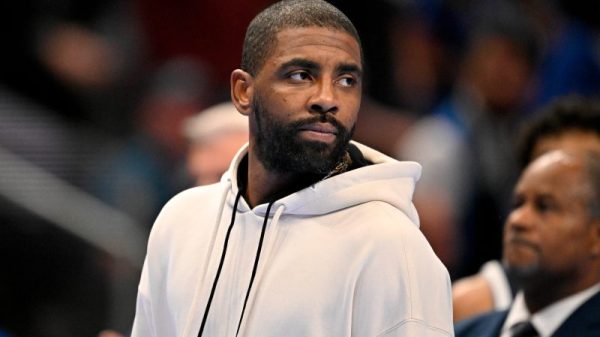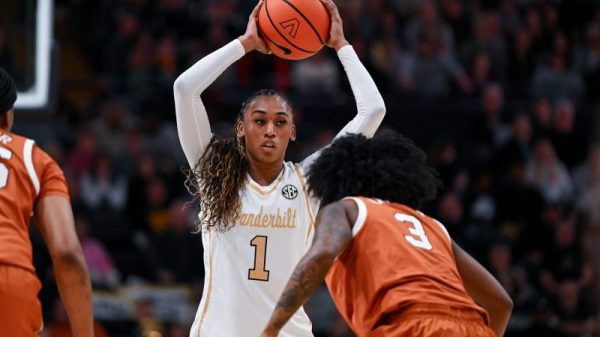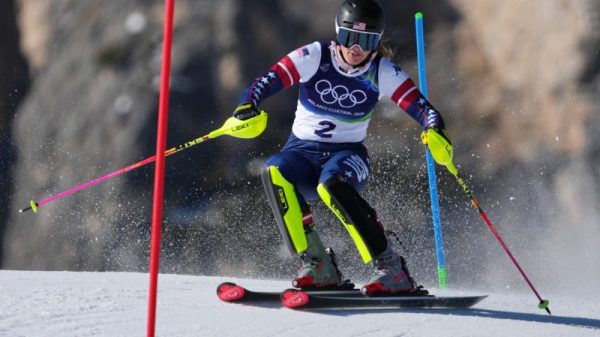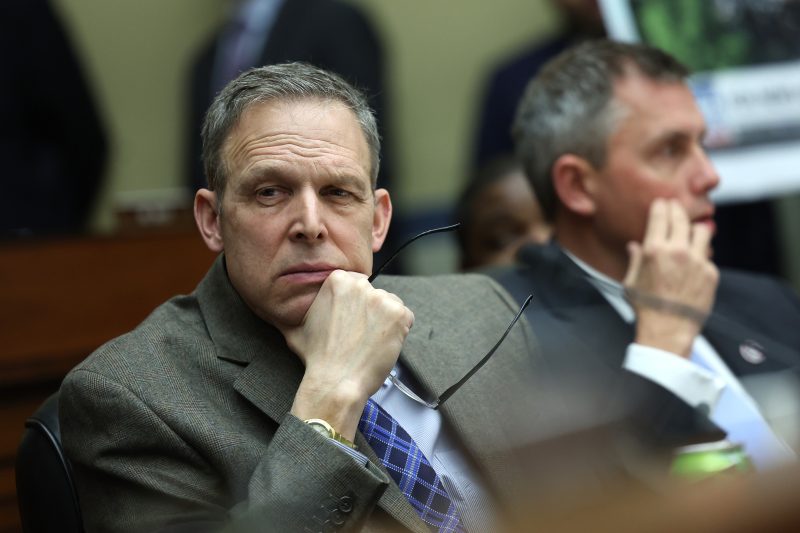When a Republican congressman pushed the Trump White House to embrace false election fraud claims and refuse to cede power, was that integral to his job?
That question was debated Thursday before the U.S. Court of Appeals for the D.C. Circuit, which Rep. Scott Perry is asking to block a search of his cellphone by the special counsel investigating the Jan. 6, 2021, attack on the U.S. Capitol.
The Pennsylvania Republican is supported by bipartisan House leadership in arguing that the speech or debate clause of the Constitution bars the Justice Department from seeing the phone contents.
“Informal legislative fact-finding is protected from intrusion,” argued John Rowley, a former federal prosecutor representing Perry. He said the congressman “was investigating … two pending matters” when the messages at issue were sent — the Jan. 6 vote on certifying the 2020 election results, and a Democratic proposal to expand voting rights.
After Joe Biden’s 2020 election victory, Perry pushed the White House and Justice Department to investigate implausible election fraud claims, including that an Italian defense contractor conspired with senior CIA officials to flip votes from President Donald Trump to Biden using military satellites. Perry was also involved in the effort to install as acting attorney general Jeffrey Clark, a Justice Department official who backed plans to block Biden from taking office. Clark’s home has also been searched. Neither has been charged with a crime.
The speech or debate clause, written to prevent the president from trying to corruptly influence lawmakers with threats of prosecution, protects legislators from being questioned outside Congress about their work. The Supreme Court has interpreted that language as covering any “integral part of the deliberative and communicative processes” of congressional proceedings.
It has protected a senator who read classified material aloud at a committee hearing and a lawmaker accused of getting paid to help immigrants attain citizenship. But it is unclear whether the privilege applies to a lawmaker’s conversations with members of the executive branch at all, and particularly to discussions about subverting an election to keep the executive in power.
“What we’re talking about here seems a bit far afield from speech or debate,” Judge Gregory G. Katsas said. Under Perry’s theory, he said, the privilege “extends to anyone in the world.” Judge Neomi Rao also questioned whether confidentiality is in play when a congressman is speaking to “somebody outside Congress.”
But the two judges, both Trump appointees, questioned the line drawn by the government and endorsed by a district court judge between formal committee investigations and individual queries.
“No informal outreach is covered, no matter how pure, no matter how clearly the purpose is fact-finding?” Katsas asked. “Is participating in voting not sufficiently integral?”
John M. Pellettieri of the Justice Department argued that without a firm distinction between formal and informal evidence gathering, “everything that occurs in a congressman’s life” would be shielded from scrutiny, because “every facet of American life comes before Congress” and could be considered part of a lawmaker’s personal investigation.
“There are a lot of things that members do that are very important … but not covered” by the speech or debate clause, Pellettieri argued.
Rowley countered that the Justice Department’s rule “would mean only the majority could conduct fact-finding,” because they control House committees.
Katsas suggested deciding based on whether individual communications are “linked with criminality” — a proposal Pellettieri called “unworkable” because of the “thousands of documents” involved.
Perry, who refused to answer a subpoena from House lawmakers investigating the Jan. 6 attack, initially fought the search in open court before moving to sealed proceedings. In his lawsuit, Perry argued that “only … the member of Congress whose records are at issue” can decide “the extent to which the Speech or Debate Clause applies to those records.”
The third member of the panel, George H.W. Bush appointee Karen Henderson, did not ask any questions.
“This is one of these classic ‘executive versus legislative branch’ issues,” said Philip Kiko, a longtime attorney for the House now with Williams & Jensen. He wrote a supporting brief in a 2007 case where the D.C. Circuit ruled that FBI agents violated the speech or debate clause when searching a House member’s office.
Kiko said the clause is generally interpreted “quite broadly,” as he believes it should be: “It’s so central to the functions of a member of Congress. … Members should be allowed to, and do, analyze and do research and investigation.”
Former vice president Mike Pence is also fighting a subpoena from the special counsel, arguing that his role as president of the Senate gave him the same protections as a lawmaker.
J. Michael Luttig, a former appellate court judge who advised Pence that there was no legal way to defy the 2020 election results, said on Twitter the vice president was acting in “an essentially ceremonial role” on Jan. 6.
“If there are privileges and protections enjoyed by a Vice President when he or she serves as the President of the Senate during the Joint Session to count the electoral votes, those privileges and protections would yield to the demands of criminal process as — if not sooner than — do the Speech or Debate Clause privileges and protections for Senators and Representatives,” Luttig wrote.
Stanley M. Brand, a former counsel for the House on Perry’s legal team, said he considered Pence’s argument against disclosure equally strong.
“The 12th Amendment places the counting of electoral votes in the Congress’ bailiwick. Therefore it’s legislative, and it’s protected,” Brand said. “The vice president serves as the presiding officer. … I don’t see how a special counsel subpoena into his role in a legislative process isn’t interference with that process.”
Brand declined to comment on the specifics of Perry’s case, which remains almost entirely under seal.
To obtain the warrant to search Perry’s phone, the Justice Department would have had to show probable cause that a crime was committed. Perry has said through a spokesperson that he is considered a witness, not a subject, in the investigation.
Perry now sits on the House Oversight Committee.
A former White House aide testified before Congress that Perry had asked Trump for a presidential pardon for criminal liability for his efforts to overturn the 2020 election. Perry denies doing so.



























